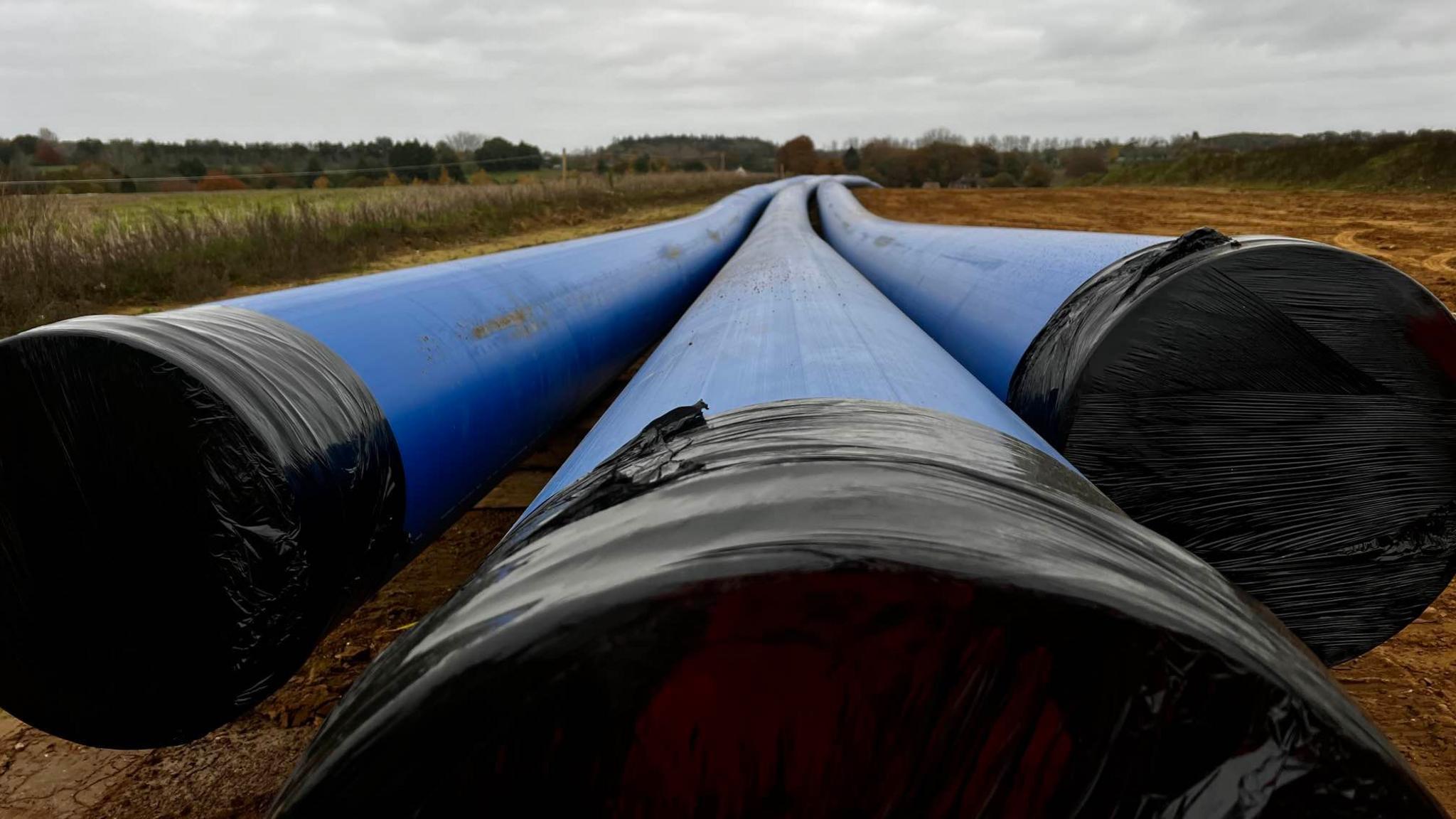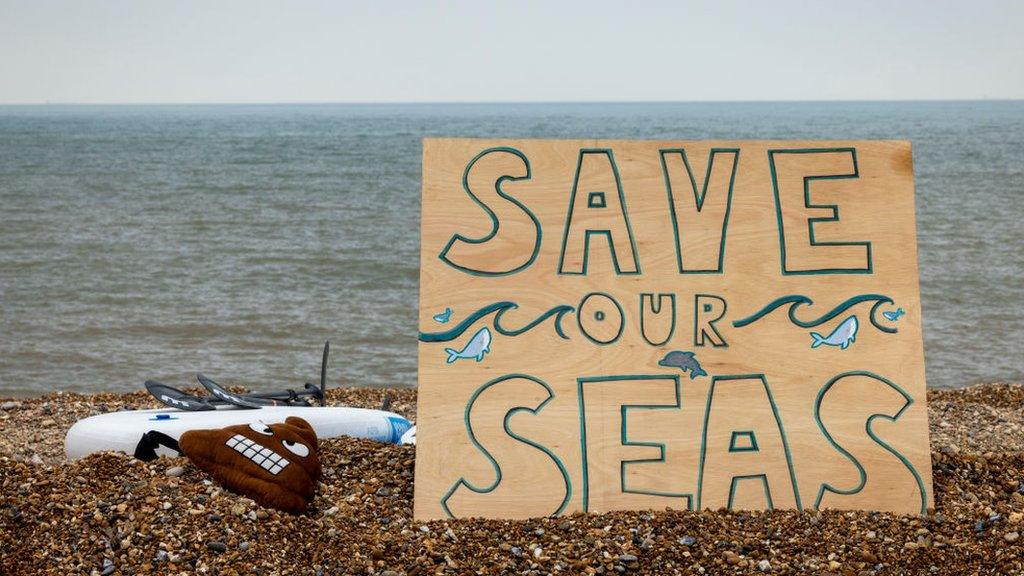Sewage pipelines planned for unprotected rivers
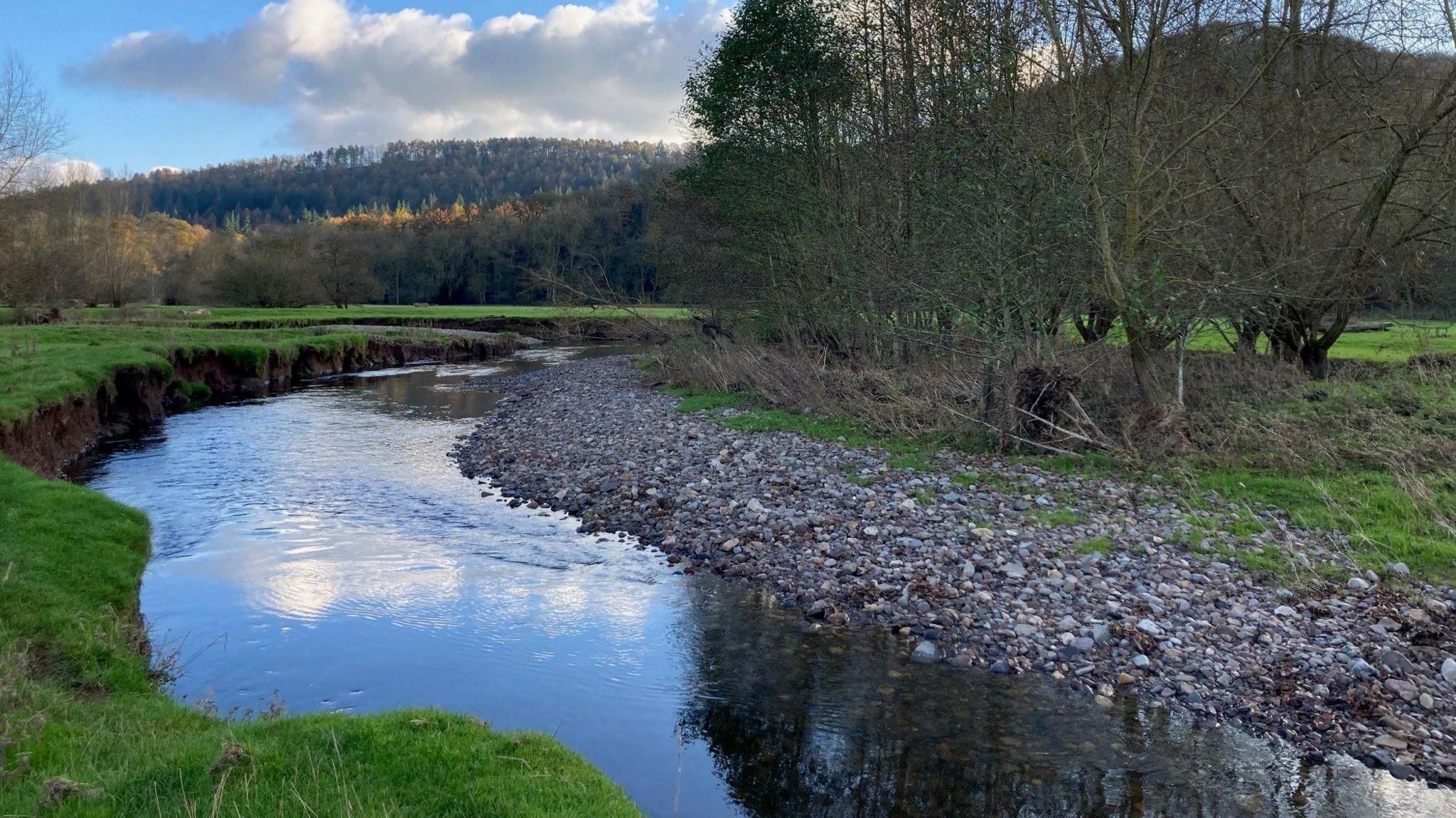
The River Onny is among those earmarked to take treated waste water
- Published
Water companies are planning to build a pipeline network to move treated sewage away from conservation areas and into rivers, lakes and seas which do not have the same legal protection.
The work will be funded by customers and the water regulator, Ofwat, has provisionally said bills would rise by an average of £19 a year between 2025 and 2030.
Billions of pounds could be spent on the nationwide projects - including 10 schemes being planned by Severn Trent Water.
Water companies say the investment is part of their plans to reduce the amount of sewage which ends up in our waterways and maintain supplies of drinking water.
Ofwat is set to rule on the water companies' proposals later this month.
People who live and work along the proposed routes say they are devastated, with one farmer, George Rowe, stating: "It will be as bad as HS2 for the countryside."
One pipeline would cut through at least 15 miles (24km) of the Derbyshire, Staffordshire and Leicestershire landscape.
Severn Trent Water's £80m project will bypass the River Mease and put treated waste water directly into the River Trent.
The Mease is classified as a special area of conservation and is home to protected species such as otters, white-clawed crayfish, bullhead and spined loach.
The Trent does not have the same legal protection.
Water firms can legally discharge treated sewage into rivers, lakes and seas, but the Environment Agency (EA) sets limits on the number of times they can release it into conservation areas.
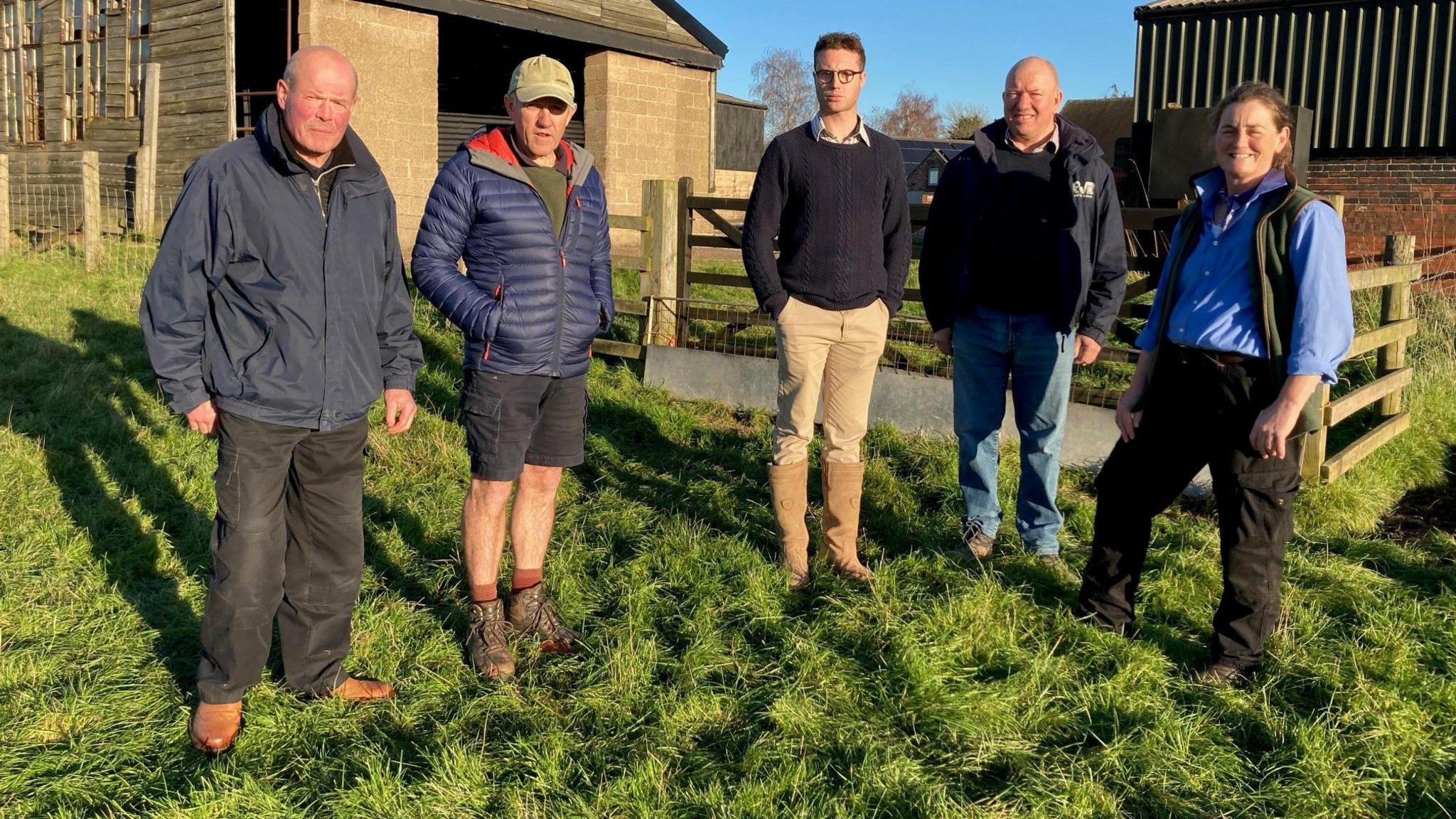
Dave and George Rowe (centre) said it would have a huge impact on their farm
Dave Rowe and his nephew George, who are farmers and contractors in Harlaston, near Lichfield, said the pipeline would affect 30 acres (12.1 hectares) of land they use to grow potatoes.
"We are concerned that we may no longer be able to plough the area where the pipe is laid and if we can plant a crop for 2026," George said.
"A wildflower meadow on the farm will be destroyed and we may no longer be able to extract water for irrigating our crops," his uncle added.
'No consultation'
Phillip Busby grows fruit and vegetables in Swadlincote, Derbyshire, and is chairman of the local branch of the National Farmers' Union (NFU).
"The overall environmental impact of the pipeline is going to be huge and we've seen no data to show us what the benefits will be," he said.
"There's been no consultation with us - we're the insignificant other."
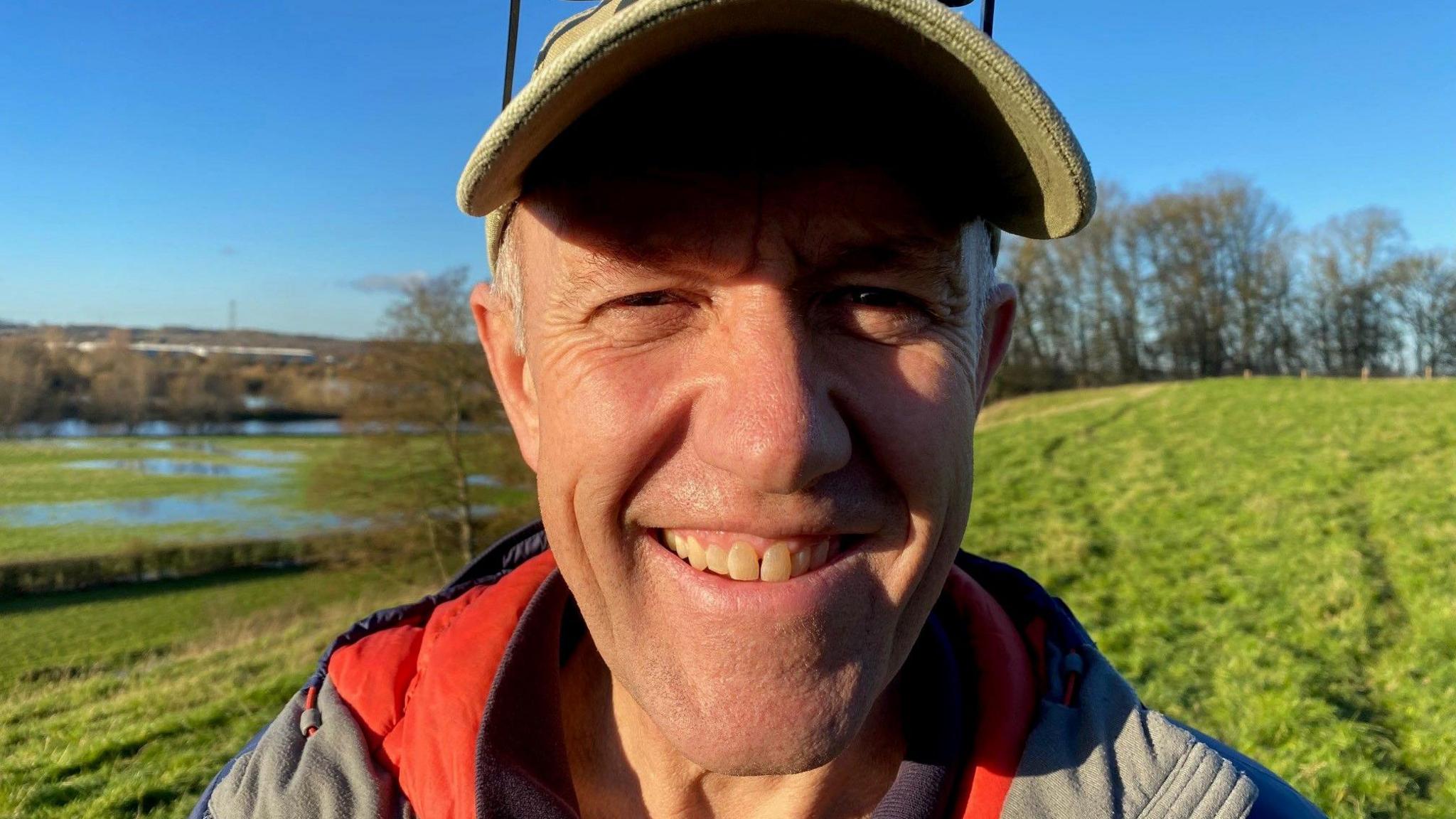
Phillip Busby said farmers had not been consulted about the proposed pipeline
In treating the sewage, first the waste is separated from the water, then oxygen is pumped in to encourage the good bacteria to eat the harmful bacteria.
Particles are then removed before the water is discharged.
Water companies can also release untreated sewage when it rains heavily, to stop homes being flooded.
Sewage spills by water companies more than doubled in 2023.
Water companies do not need planning permission to install pipes on private land, they just have to give a week's notice before starting work.
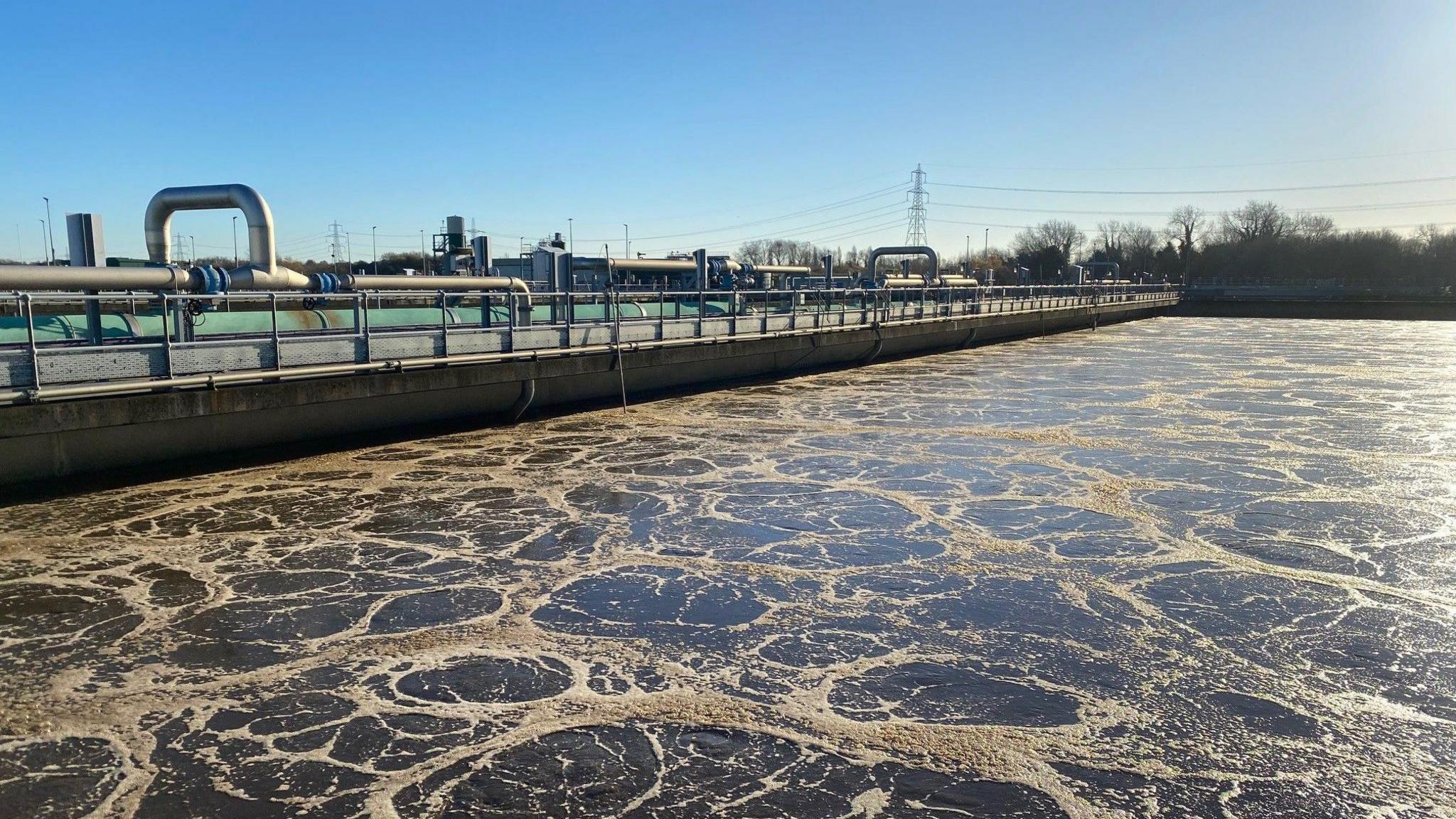
Sewage is treated with oxygen to reduce harmful bacteria
Amy Wheelton is a farmer and local councillor from nearby Walton on Trent and called on the secretary of state to put the pipeline on hold.
"Spades could be in the ground as soon as March, yet farmers only started hearing rumours about the plans in August," she said.
"It's going through hedges, across farmlands, across roads, it will do massive ecological damage."
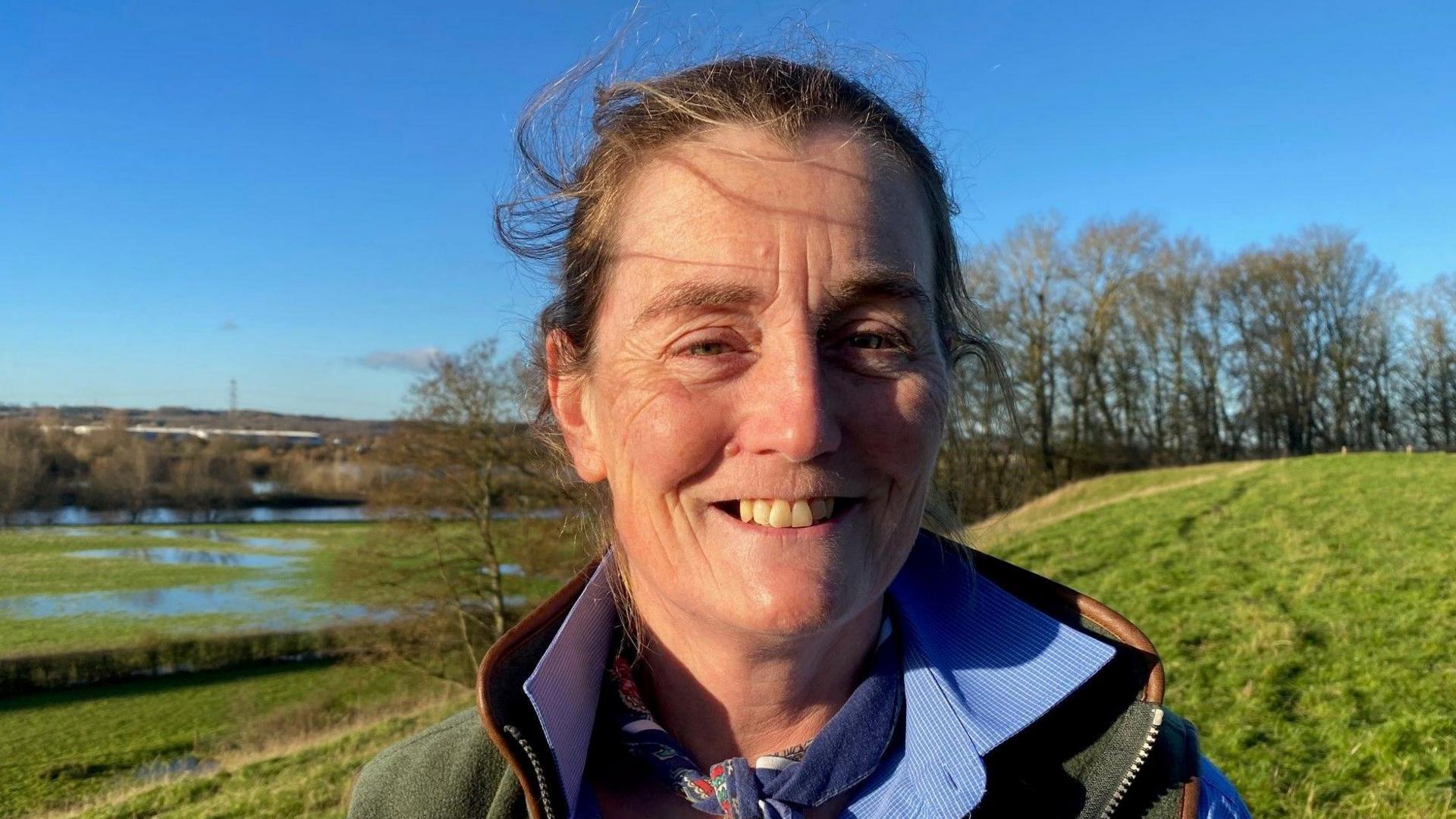
Derbyshire farmer Amy Wheelton wants the farming minister to intervene
In October, the Environment Secretary Steve Reed announced the largest review of the water sector since privatisation in 1989.
He said water firms would be placed under "special measures" through the Water Bill, which would include "new powers to ban the payment of bonuses for polluting water bosses and bring criminal charges against persistent law breakers".
'One rule for them'
Steve Hill, a dairy farmer from Tamworth, said he felt there had been no respect for the community and local businesses.
"We're not allowed to pull hedges and trees out, but Severn Trent can," he said.
"It's one rule for them and another for us."
Severn Trent said staff had met with local MPs and landowners and had held two public events about the plans.
"The Environment Agency has asked us to reduce flows on the River Mease to a more natural state and to do this we'll be diverting the fully treated water from our Packington and Measham treatment works," a company spokesperson said.
"We have taken on board feedback around the engagement process and, in discussion with the NFU, have updated our consultation approach."
Kingfishers and otters
A similar project is planned for the Clun Valley in Shropshire where Severn Trent plan to build a new pipeline at least five kilometres (3.1 miles) long.
It will take treated waste water, currently being discharged into the River Clun, and discharge it into the River Onny, a habitat for salmon, grayling and trout.
Local anglers and conservationists are dismayed.
"How would you feel if I was chucking my rubbish into your garden, every day, in perpetuity?" said Andy Boak, from the Onny Preservation Trust.
"It's the same thing. The fish, the invertebrates, the insects, the otters, the dippers, the kingfishers. What is going to be the implication for them?"
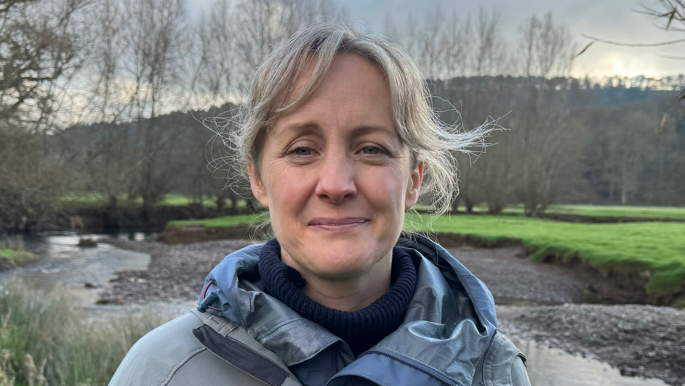
Solicitor Penny Gane said she felt the public had been kept in the dark
Penny Gane, a lawyer with Fish Legal, an organisation that uses the law on behalf of anglers to targets polluters, is representing the Plowden Fishing Club
"Water companies in this country were asked to innovate when it came to sewage treatment and moving a problem of pollution in one river to another is not innovation," she said.
"We cannot understand how the environmental regulators would have sanctioned this."
A spokesperson for Severn Trent said transferring fully treated water to the Onny it can "support the river [Clun's] environmental targets".
The Environment Agency (EA) sets limits for how much waste water can be put back into rivers, lakes and seas.
It said in some cases, the water companies choose to transfer the treated sewage effluent to another watercourse and apply for a new discharge permit.
"We are liaising with Severn Trent on their proposals for approximately 10 treated effluent transfers to alternative watercourse locations," the EA added.
"We will ensure the water environment is protected and enhanced by any scheme approved."
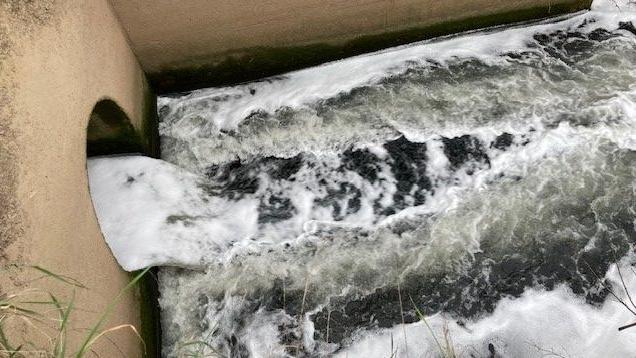
Treated sewage can be legally discharged into rivers, lakes and seas but the Environment Agency sets limits on how often they can release it into conservation areas
Water companies in England and Wales are planning to spend £108bn in the next five years on a raft of measures to reduce pollution, including such pipelines.
The money will come from customers.
In July, Ofwat provisionally said bills would rise by an average of £19 a year between 2025 and 2030 - totalling a £94 increase, or a 21% rise, over that five-year period. That increase does not include inflation.
Plans to move water from the Thames at Teddington and then put treated waste back into the river downstream have been criticised by rowers, politicians and local people.
"The project is designed to protect Greater London's drinking water supplies during periods of drought," said a spokesperson from Thames Water.
"To replenish what is taken and balance water levels and flows, highly treated recycled water would then be transferred via a new tunnel and pipeline from Mogden sewage treatment works back into the River Thames."
In Cumbria, United Utilities is building a 3.4-mile (5.5km) pipeline to move treated sewage.
"Instead of the storm overflow discharging into Morecambe Bay it is now diverted to Barrow and treated there before being discharged into the Walney channel," a spokesperson said.
- Published6 November 2024

- Published28 October 2024
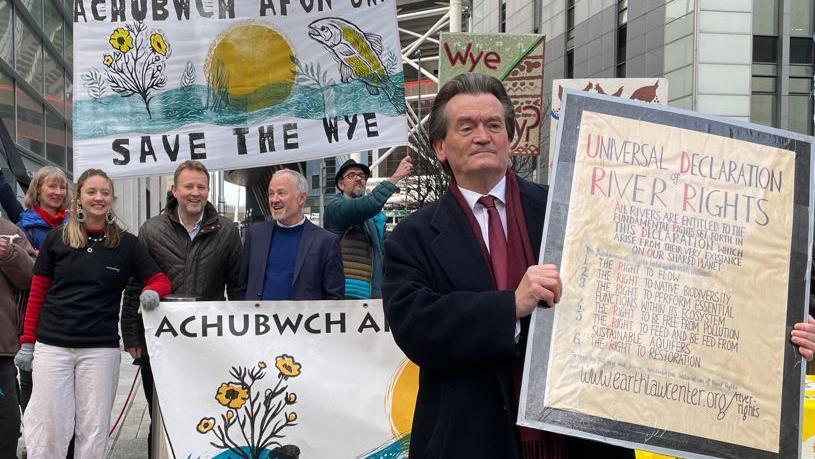
- Published7 September 2024
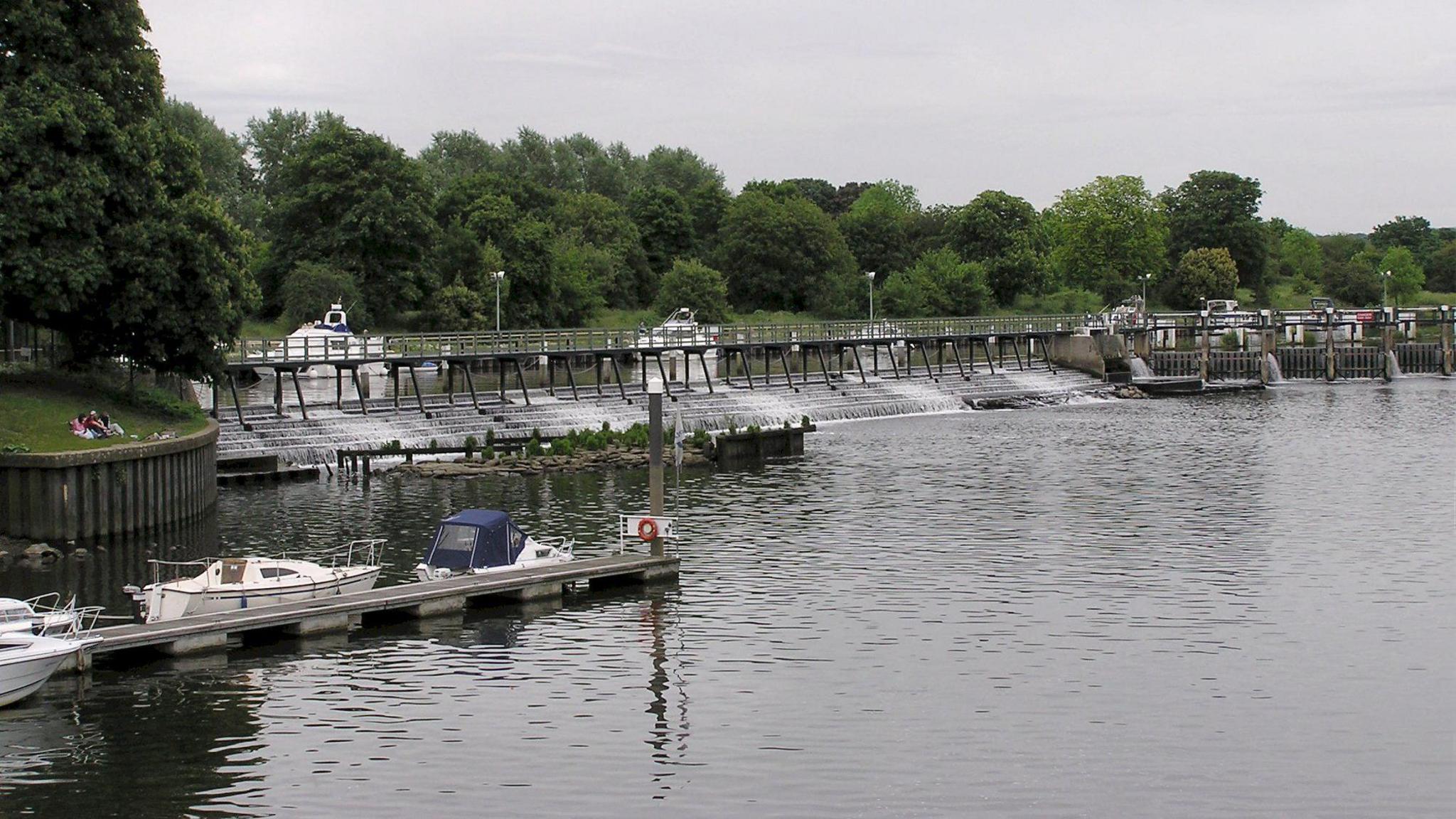
- Published18 November 2024
